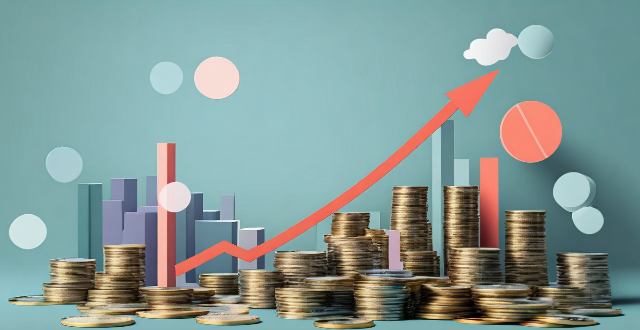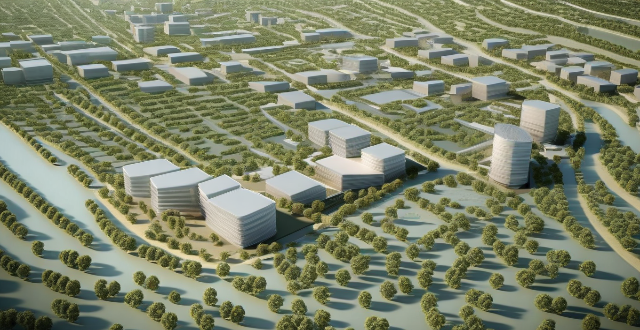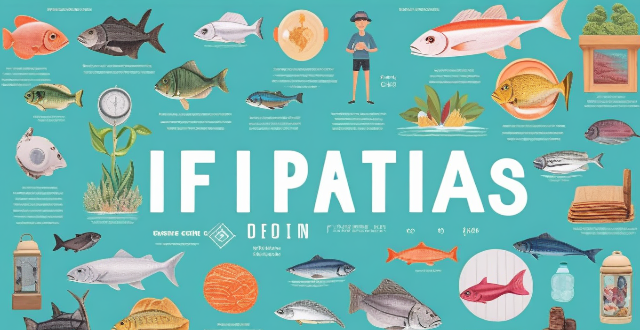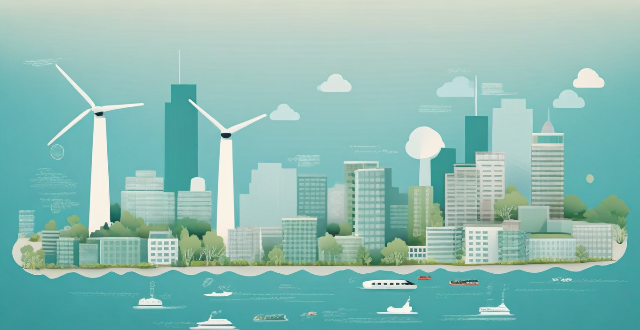Economic Sports

How do economic recessions and downturns affect consumer spending on sports-related activities and products ?
Economic recessions significantly impact consumer spending on sports-related activities and products, affecting various aspects of the industry. Reduced disposable income leads to budget cuts and prioritization of basic needs over leisure activities. Changes in consumer behavior include seeking value-oriented options and DIY approaches to sports participation. Decreased ticket sales, cancellations/rescheduling of events, reduced sales of sports goods, and bargain hunting are common during economic downturns. Gym memberships may be canceled in favor of free or lower-cost alternatives, and investment in fitness technology could suffer. Fewer trips for sports tourism and a rise in localized activities are also likely. Sponsorships and advertising revenue may decrease, leading to job losses and wage stagnation across the sports industry. Long-term effects include recovery time and shifting habits formed during recessions. As economies recover, the sports industry must adapt to these changes and find innovative ways to attract consumers back to their venues.

How has sports culture influenced globalization ?
Sports culture has significantly influenced globalization by promoting international cooperation, cultural exchange, economic benefits, media coverage, and tourism. Sports events like the Olympics and World Cup foster goodwill among countries, while also generating revenue through ticket sales and sponsorships. Athletes from different nations come together to share their skills and traditions, leading to mutual respect and appreciation of diverse cultures. Sports tourism is a growing industry that promotes cultural exchange and economic growth in host cities and countries. Overall, sports culture plays a crucial role in promoting global awareness and understanding.

How do competitive sports contribute to the growth of a country's economy ?
Competitive sports significantly contribute to a country's economic growth by boosting tourism, creating jobs, generating media and advertising revenue, diversifying the economy, improving social welfare, enhancing urban development, and attracting foreign investments. Major sporting events not only provide temporary employment but also stimulate long-term infrastructure development and technology innovation. Moreover, they foster national unity and health benefits, indirectly contributing to economic stability. Overall, competitive sports are instrumental in showcasing a country's potential on a global scale, leading to numerous economic advantages.

What are the economic implications of the globalization of professional sports leagues ?
Globalization has significantly impacted the world of professional sports, leading to increased competition, market expansion, and financial opportunities. This phenomenon has brought about various economic implications that affect players, teams, leagues, and fans alike. One of the primary effects is the increased competition among teams and players, driving up player salaries and transfer fees. Globalization has also led to the expansion of sports markets beyond traditional borders, allowing for greater revenue generation through increased ticket sales, merchandise sales, broadcasting rights, and sponsorship deals. However, it also presents challenges and risks such as corruption, match-fixing scandals, financial instability, and the dilution of local sports traditions. Overall, addressing these challenges is crucial for the continued success and sustainability of professional sports leagues worldwide.

How do sports facilities impact the economic vitality of a city ?
Sports facilities enhance city economy by attracting tourists, creating jobs, promoting community development, offering branding opportunities, and improving public health.

How can sports events be leveraged to promote economic growth and development in local communities ?
Sporting events have long been recognized as a powerful tool for promoting economic growth and development in local communities. By attracting visitors, generating revenue, and creating jobs, sports events can have a significant impact on the local economy. In this article, we will explore some of the ways in which sports events can be leveraged to promote economic growth and development in local communities: 1. **Attracting Visitors:** Sports events can attract tourists from all over the world, who may stay in local hotels, eat at local restaurants, and visit local attractions. These visitors will spend money on tickets, food, souvenirs, and other items, which can generate significant revenue for the local economy. 2. **Generating Revenue:** The sale of tickets to sporting events can generate significant revenue for local communities. Additionally, sports events often attract sponsors and advertisers who are willing to pay for the opportunity to associate their brand with the event. 3. **Creating Jobs:** The preparation for and hosting of a sporting event requires a large number of workers, including security personnel, ticket takers, concession stand workers, and more. These jobs can provide employment opportunities for local residents and help to reduce unemployment rates. 4. **Stimulating Economic Development:** Sports events can stimulate economic development by encouraging investment in infrastructure and promoting the growth of related industries. For example, the construction of a new stadium or arena can create jobs and stimulate economic activity in the surrounding area. Additionally, the growth of industries related to sports, such as sports tourism and sports marketing, can provide new opportunities for economic growth and development.

What are the economic implications of producing big-budget sports films ?
Producing big-budget sports films involves significant financial investments, stakeholder involvement, and potential revenue streams. The economic implications include high production costs, long-term financial commitments, impacts on local economies, and reliance on various revenue sources like box office earnings and ancillary markets. These films also face unpredictable industry risks and pressure to succeed due to high stakes. Managing these challenges is crucial for achieving financial success in producing big-budget sports films.

Can economic indicators accurately predict a recession ?
Economic indicators, such as GDP growth rate, employment rate, inflation rate, interest rates, consumer sentiment, and manufacturing/service sector activity, are used to gauge the health of an economy. While these indicators provide valuable insights, their ability to predict a recession is not absolute due to limitations like lagging indicators, false signals, external factors, and policy responses. A combination of indicators and a probabilistic approach can improve accuracy in predicting economic downturns.

How can we balance economic development and water resource protection ?
Water resources are crucial for economic development but must be protected to ensure sustainability. Strategies for balancing these goals include prioritizing sustainable practices, implementing regulatory measures, fostering collaboration and partnerships, investing in infrastructure and technology, and educating and creating awareness. By adopting these approaches, we can achieve a balance between economic growth and water conservation, ensuring long-term sustainability for all.

What impact does consumer confidence have on economic recovery ?
Consumer confidence is a key driver of economic recovery. It stimulates growth, boosts employment rates, reduces unemployment, and increases government revenue. To improve consumer confidence, governments should encourage stable economic policies, provide financial education, promote transparency, and invest in infrastructure.

How do economic systems contribute to environmental problems and climate change ?
Economic systems, especially capitalism and industrialization, significantly impact the environment by promoting overproduction, waste, and reliance on fossil fuels. Issues such as built-in obsolescence, global trade emissions, and exploitation of natural resources exacerbate environmental problems. Additionally, population growth and urbanization increase consumption, while market failures and regulatory gaps often overlook environmental costs. Addressing these challenges requires a shift in economic priorities towards sustainability.

How can we balance economic growth with environmental sustainability ?
Balancing economic growth with environmental sustainability requires a multifaceted approach that includes promoting green infrastructure and renewable energy, encouraging sustainable business practices, fostering innovation and technology development, educating and engaging stakeholders, and implementing policies and regulations. By taking these steps, we can create a more sustainable future where economic prosperity coexists with environmental well-being. Achieving this balance will require ongoing effort from all sectors of society, including governments, businesses, communities, and individuals alike.

What is an economic stimulus plan ?
An economic stimulus plan is a government policy aimed at boosting a country's economy during times of slow growth or recession. The primary goal of such plans is to increase consumer spending, encourage business investments, and create jobs, thereby stimulating economic activity and promoting overall growth. Key features of an economic stimulus plan include tax cuts and rebates, government spending on infrastructure projects, monetary policy adjustments, direct assistance to businesses and individuals, and incentives for investment. Benefits of an economic stimulus plan include increased economic growth, job creation, long-term gains, and reduced poverty rates. However, potential downsides of an economic stimulus plan include national debt, inflation risks, crowding out effect, and short-term vs long-term effects. In conclusion, an economic stimulus plan is a multifaceted approach employed by governments to revive flagging economies. While these plans can have significant positive impacts on growth, employment, and overall well-being, they must be carefully designed and implemented to minimize potential drawbacks such as increased national debt and inflation risks.

How do changes in immigration policy influence economic growth ?
Changes in immigration policy can have a significant impact on economic growth by increasing the labor force, promoting diversity, increasing consumer spending, reducing wage inflation, and increasing tax revenue.

What is the outlook for the European Union's economic recovery ?
The economic recovery of the European Union (EU) depends on political stability, global economic conditions, and domestic policies. Unity among member states and effective governance are crucial for managing crises and implementing growth-promoting policies. Global trade dynamics and supply chain disruptions also play a significant role. Domestically, fiscal stimulus, structural reforms, and a balanced green transition are key. The outlook is optimistic but uncertain, with many influencing factors.

How does sports sponsorship impact the economic development of a city or region hosting major sporting events ?
Sports sponsorship has a significant impact on the economic development of a city or region hosting major sporting events. It creates jobs, stimulates the tourism and hospitality industry, promotes infrastructure development, and enhances branding and promotion. However, it is essential to consider the potential challenges and work to address them effectively.

What are the economic benefits of biodiversity ?
Biodiversity plays a significant role in the global economy by providing various economic benefits. These include increased resilience to climate change, support for sustainable agriculture, tourism revenue, pharmaceutical and medical research opportunities, ecosystem services, fisheries and food security, cultural and aesthetic value, innovation and education, risk management and insurance, and trade and livelihoods. Preserving biodiversity is crucial for maintaining these economic benefits across different sectors.

What are the potential economic benefits of sharing climate information ?
The potential economic benefits of sharing climate information include improved decision making through better planning and management, risk assessment and mitigation, increased efficiency and productivity, innovation and new business opportunities, and growth of the green economy. By leveraging this information effectively, businesses, governments, and individuals can adapt to changing climatic conditions while minimizing risks and maximizing economic gains.

How does sports diplomacy contribute to international relations ?
Sports diplomacy is a form of soft power that uses sports events and activities to foster relationships between nations. It contributes to international relations by enhancing mutual understanding, promoting economic cooperation, and promoting peace and security. Sports diplomacy promotes cultural exchange and builds trust between nations. It also attracts investment, creates job opportunities, reduces tensions, and enhances security cooperation. Overall, sports diplomacy plays a crucial role in building stronger relationships between nations.

What are the potential economic benefits of mining resources on other planets ?
The article discusses the potential economic benefits of mining resources on other planets, including increased availability of resources, creation of new jobs, advancements in technology, stimulation of economic growth, diversification of energy sources, and expansion of human habitat.

What are the economic impacts of implementing renewable energy policies ?
Renewable energy policies have both positive and negative economic impacts, including job creation, energy cost savings, reduced emissions, higher upfront costs, intermittency issues, and land use concerns. As we transition towards a more sustainable future, it will be important to carefully consider these impacts and work towards finding solutions that balance environmental goals with economic realities.

What are the economic implications of a climate emergency ?
The climate emergency, primarily caused by human activities, has significant economic implications affecting various sectors of the global economy. These include impacts on natural resources such as water scarcity, soil degradation, and energy supply; loss of biodiversity affecting ecosystem services and tourism; reduced crop yields and livestock production affecting agriculture and food security; risks to infrastructure and urban areas from flooding and heat waves; direct and indirect effects on human health; and broader impacts on global economic growth and international trade. Addressing these challenges requires coordinated efforts from governments, businesses, and individuals around the world to reduce greenhouse gas emissions and adapt to the changing climate.

How do cultural exchanges through sports influence international relations ?
Cultural exchanges through sports have a significant impact on international relations by promoting mutual understanding, enhancing diplomatic relations, promoting peace and unity, providing economic and social benefits, increasing globalization, and presenting potential challenges such as nationalism and commercialization concerns. These exchanges foster understanding, build bridges between nations, and contribute to a greater sense of global community.

What role do international sports organizations play in fostering global cooperation ?
International sports organizations are crucial for global cooperation, promoting peace, cultural exchange, economic development, health, gender equality, environmental sustainability, and humanitarian aid.

What are the key factors that influence the economic success of a sports team or league ?
The economic success of a sports team or league is influenced by various factors, including fan base and attendance, broadcasting rights and media coverage, sponsorship and partnerships, player performance and talent management, marketing and branding, financial management, governance and leadership, and legal and regulatory framework. A loyal fan base ensures consistent ticket sales and merchandise purchases, while higher attendance rates lead to increased revenue from ticket sales. Lucrative broadcasting contracts and positive media coverage attract fans and sponsors alike. Corporate sponsors provide financial support, while strategic alliances with other brands expand marketing reach. Top players attract fans and improve team performance, while effective draft strategies ensure a steady stream of talented athletes. A strong brand resonates with fans and attracts commercial interest, while creative marketing campaigns generate buzz and drive sales. Efficient spending on operations and player salaries is crucial for financial success, as is diversifying revenue streams. Strong leadership sets the course for long-term success, while transparent governance fosters trust among stakeholders. Adhering to laws and regulations avoids financial penalties and reputational damage, while fair labor agreements ensure stability. Overall, these factors work together harmoniously to create a sustainable and thriving sports organization.

In what ways does sports culture contribute to national identity ?
Sports culture significantly contributes to national identity by representing national values, promoting cultural exchange and diplomacy, preserving historical traditions, evoking national pride and unity, and enhancing economic growth. It serves as a powerful tool for uniting people under a common banner and showcasing the unique character of a nation to the world.

What are the benefits of promoting sports in underprivileged communities ?
The text discusses the benefits of promoting sports in underprivileged communities, including improved health and well-being, educational opportunities, community building, and economic development. It emphasizes that sports programs can enhance physical and mental health, provide academic support and life skills, foster social cohesion and civic engagement, and create jobs and attract businesses. It concludes that recognizing and supporting sports initiatives in underprivileged communities is essential for their transformative impact.

In what circumstances is an economic stimulus plan most necessary ?
An economic stimulus plan is most necessary during times of recession, slow economic growth, high unemployment rates, or financial crisis. These plans can help to boost economic activity, create jobs, and stabilize the financial system by implementing policies such as increasing government spending, reducing taxes, providing subsidies to businesses, encouraging investment in new technologies, expanding access to credit, investing in infrastructure projects, offering tax incentives for hiring new employees, and implementing regulatory reforms.

What is the relationship between energy prices and economic growth ?
The interplay between energy prices and economic growth is multifaceted, with each influencing the other in various ways. High energy prices can impede economic expansion by escalating production costs, diminishing consumer purchasing power, and fostering inflation. They might also spur investment in alternative energies and drive resource reallocation towards efficiency, counterbalancing some of their immediate negative impacts. Conversely, robust economic growth often amplifies energy demand, propelling prices upwards unless compensated by enhanced supply or technological advancements that boost efficiency. This intricate relationship underscores the importance of strategic policy interventions to manage energy pricing dynamics for sustainable economic development.

What are the key indicators of economic recovery ?
Economic recovery is a complex process that involves several key indicators. These indicators are used to gauge the health and growth of an economy after a period of decline or recession. Some of the most important indicators of economic recovery include GDP growth, employment rates, consumer spending, business investment, the housing market, inflation rates, trade balance, and stock market performance. Each of these indicators provides valuable insights into the overall health and growth of an economy.